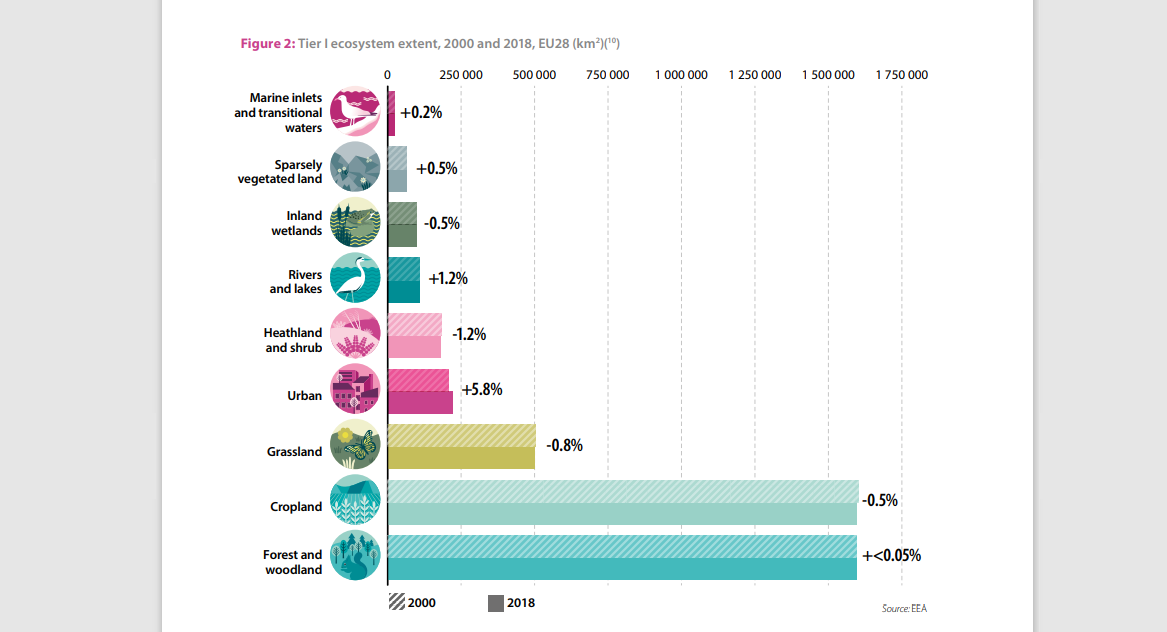A new report on ecosystems and the ‘essential services’ they contribute to the economy and society has been published.
Accounting for ecosystems and their services in the European Union outlines the benefits that forests, rivers, grasslands, wetlands and other ecosystems provide.
It also shows how restoring degraded ecosystems has the potential to double nature’s contribution to the European Union’s (EU) economy and society.
The report shows that seven EU ecosystem services – crop pollination, crop and timber provision, water purification, flood protection, carbon sequestration and recreation in high-value natural areas – were calculated at a value of €172 billion.
While in 2019, the economic value provided by a wider set of ecosystem services in the EU amounted to €234 billion.
This value is comparable to the gross value added of agriculture and forestry combined, according to the report.
Water purification is the ecosystem service with the highest aggregated value, followed by nature-based recreation.
Commissioner for Environment, Oceans and Fisheries, Virginijus Sinkevicius said:
“This report is a key tool for future-proof policymaking. It will allow us to make better-informed decisions and policies under the European Green Deal, benefiting people, planet and the economy.”
Despite the crucial role of ecosystems for the economy and society, there is no established and regular measurement of ecosystem condition or of the quantity of services they supply, he said.
“The EU INCA project aims to close that gap by delivering an integrated system of ecosystem accounts for the EU. The report summarises key results of this project, showing practical examples of possible uses of ecosystem services accounts and existing policy application.
“It allows scientists, statisticians and policymakers to learn how ecosystems and their services support our society, what changes in ecosystems and ecosystem services took place in the EU in the past couple of decades and how all this can be measured in a standardised and comparable way.”
Europe’s growing population and the increasing urbanisation and consumption are putting pressure on ecosystems and the services they provide.
The EU has pledged to prioritise the protection of 30% of the EU land and sea area by 2030 and the restoration of degraded ecosystems as key policy initiatives of its EU Biodiversity Strategy for 2030.
In 2021, the Commission will table a proposal setting binding restoration targets for different type of ecosystems.
